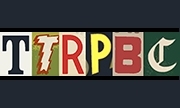5. Ethics
I’ll bring up only one quote, but this runs through the book. “Does it matter if we mean what we say, if the mere fact of the utterance saves lives?” (“Baby A,” 93 in my edition)
Are ethics deontological, meaning you should always do what is right simply because it is right? Or are ethics consequentialist, meaning you should always do what accomplishes good? (There are more than two choices in ethics, of course.)
Should Trish extract sleep just because it is the right thing to do or because it helps other people (or because it helps infect others with the ghost of Dori?)
Should Trish stop extracting sleep because it is wrong to extract something so personal and essential to one’s personhood or should Trish stop extracting sleep because it harms the person in some intangible way?
Should Trish report the Corps’ scandal because it is the right thing to do? Or should she keep quiet because it will hurt the overall program, which balances out to the good in this ethical ledger, despite one person profiting tremendously from it?
What are the ethics in the real world of extraction and infection? Should we stop doing things that are harmful to individuals immediately affected or should we measure the good and bad in order to do those things that weigh out for the good in the long run?

 Help offset server costs by donating. This is totally optional. Any overages will go to library fines or new books.
Help offset server costs by donating. This is totally optional. Any overages will go to library fines or new books.
Comments
I think ethics is (are?) an integral theme of the book, so much so that I thought one quote would stand in adequately for that thread. I don’t know that it promotes one or more of the options I present, but it presents them and invites us to explore them.
I agree the book is very much about ethics. However, it seems to me that any proper discussion of ethics requires a certain amount of indoctrination into the field, so I'm not sure how far this will go. I, for example, don't know the answer to the question: "What are the ethics in the real world of extraction and infection" though I certainly think we can guess at some of them. We still live in a world with a liberal paradigm, so right now individualism is a key guiding principle. This is why there are protests against wearing masks - for some, their individual need to choose what is right for themselves trumps their need to be responsible for the community as a whole.
As Yuval Noah Harari points out in is book "Homo Deus", there are pressures facing Liberalism and it may soon come to an end, to be replaced by Dataism. If this guess is true, we may well find that the ethical framework has changed quite a lot before we die.
Some of the ethical issues I see in this book are:
Can the public good and profit co-exist?
Who decides the public good - consensus, or elites?
Who is responsible for the welfare of babies (and by extension, all those who cannot speak for themselves).
Does the good of the many outweigh the good of the few? Always? And under what circumstances.
To what degree can rhetoric be manipulated to generate consensus? Does it matter if we omit truths for the public good?
There are more, I'm sure.